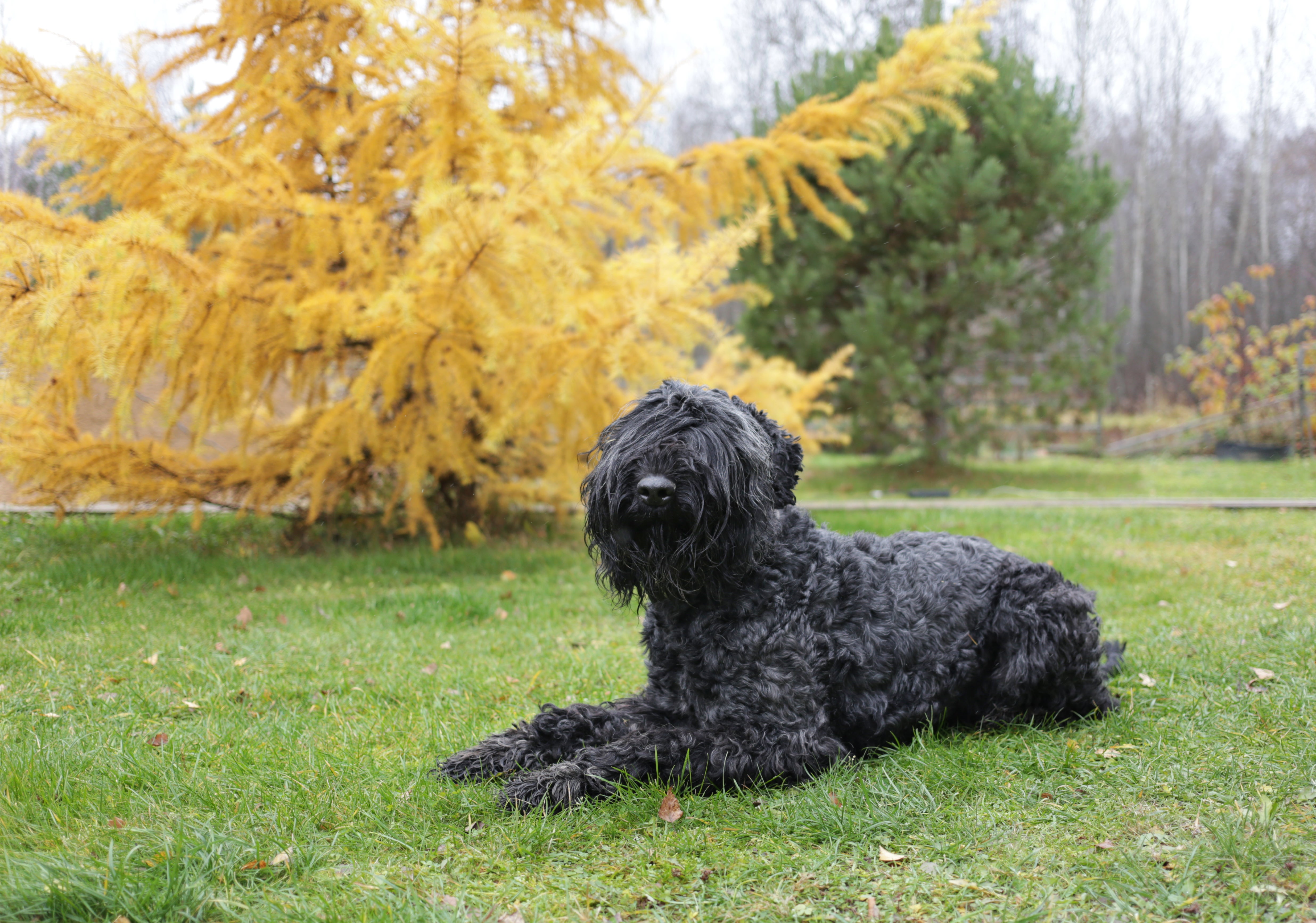Black Russian Terrier
Strong and muscular, the Black Russian Terrier is a powerful dog. They are brave and smart dogs, originally bred to guard and protect. They can grow as large as 130 pounds and stand as high as 30 inches at the shoulder. Their weatherproof coat is water repellent and insulating, allowing them to inhabit some of the coldest places in Russia and around the world.
Breed characteristics carousel
Learn More
Need to Know
- Dog suitable for owners with some experience
- Extra training required
- Generally healthy breed
- Enjoys active walks
- Giant dog
- Some drool
- Requires frequent grooming
- Chatty and vocal dog
- Barks, alerts, and may be physically protective/suspicious of visitors
- Could have issues with unknown dogs but gets along with known dogs
- May need additional training to live with other pets
- May need additional supervision to live with children
- Needs a large yard in rural areas
- Can be left alone occasionally with training
- AKC Registered Breed

Personality
Self-assured, the Black Russian Terrier is the epitome of a protective dog. They are reserved with strangers and have strong instincts to protect their families. Quick to learn and eager, they can be stubborn if asked to do something they don’t want to do. Despite their large size, they are gentle and do well with family life.
During World War II, Russians developed a new breed of dog to fit their military needs. They bred dogs from occupied countries, which were mainly black German breeds such as the Airedale Terrier, Rottweiler, and Moscow Water Dog. These dogs worked alongside soldiers, performing tasks such as transporting supplies, pulling sleds, searching and rescuing, and detecting explosives. Black Russian Terrier dog breeders left Russia with the dogs and made their way to other countries, spreading the breed across the world.
The Black Russian Terrier needs an owner who understands the mind of a working dog and has experience with very large breeds. The BRT dog is focused on its owner, so owners will need to make time and effort to cater to the dog’s need to please them. They are affectionate and loyal, which is demonstrated through their protectiveness. They need positive, consistent, and firm training to succeed and need to be socialized well to prevent them from becoming domineering.
Long walks, runs, swims, bike rides, hikes—you name it, the Black Russian Terrier wants to do it if their owner is doing it. They need plenty of exercise to keep them exhausted; otherwise, they can become lonely, bored, and destructive. They can participate in dog sports such as rallying, protection competitions, agility courses, and obedience.
The Black Russian Terrier dog can get up to 130 pounds and needs enough space indoors and outside to accommodate them. Fenced-in yards on lots of land are ideal. Inside, they will want to be in on the family action, sharing living spaces with their humans. They don’t do well in isolation, such as in a removed kennel.
A tousled, thick, and jet-black coat defines the Black Russian Terrier. It needs frequent brushing to prevent tangles and matting, and the hair around the beard and mustache will need to be trimmed regularly. If they are professionally groomed, you’ll need to find a groomer who specializes in or has experience grooming such a large dog.
Black Russian Terrier owners need to commit to training this large and powerful dog through reward-based methods. They can become domineering if not trained properly. Early and ongoing socialization is also important. They will learn quickly if treated fairly and with respect.
The Black Russian Terrier dog loves to be with his or her family more than anything. However, they are extremely large dogs that have some space, exercise, and training requirements that make them suitable for only certain family situations, such as those with no children or older children. They love human contact and are affectionate dogs.
The cost of a Black Russian Terrier from a breeder is significantly more than the cost of adopting one from a local shelter or rescue. The adoption fee usually covers additional items such as spaying or neutering, vaccines, and microchipping.

Learn more about feeding and caring for your Black Russian Terrier on Purina.
Did You Know?
- The Black Russian Terrier is sometimes referred to as the Black Pearl of Russia.
- The BRT dog was bred to keep Russian soldiers company on a variety of missions, including explosives, sled pulling, and search and rescue.
